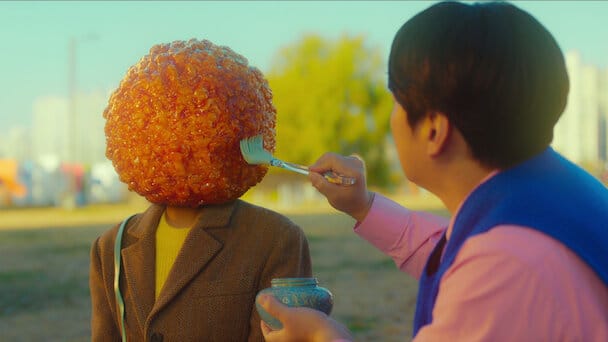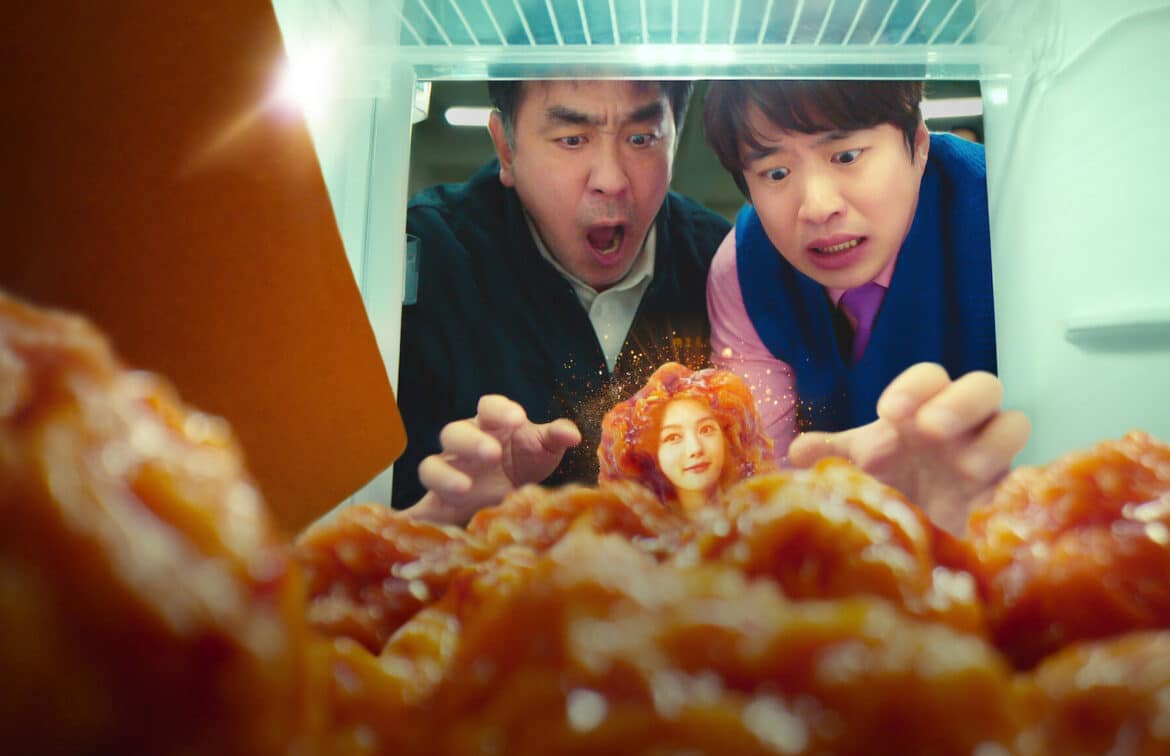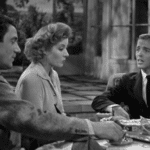If you had told me that a show titled Chicken Nugget, about a young lady who is unwittingly turned into a chicken nugget, would be one of the most intense family dramas of the year, I’d have balked. Yet ultimately, that’s just one of the many throughlines that keeps this otherwise zany show on rails. When paired with a mix of slapstick, a healthy dash of references, and so many dissected tropes you’d think it’s TV Tropes come to life, you get a complex, yet ultimately entertaining series.
Chicken Nugget, based on the Naver webtoon of the same name, starts simply enough with three co-workers in the obliquely named company More Than Machines. Their banter represents the familiarity of employees whose jokes are repeated day in and day out, with each knowing what will be said by and to the others. This would conceivably go on forever, until Choi Min-ah, the daughter of the company President played by Kim Yoo-jung, shows up one day with chicken nuggets for her, her father, and his devoted intern Go Baek-joong, played by Ahn Jae-hong, who is not-so-secretly in love with Min-ah. Baek-joong is trying to get closer to Min-ah and may finally see a potential chance when she walks into a mysterious machine that has been left on the premises. As she enters it, her last words “chicken nugget” become her downfall as the machine door then opens with Min-ah gone and in her place a lone chicken nugget. From there, Baek-joong and Min-ah’s father and company president Choi Seon-man, played by Ryu Seung-ryong, begin a quixotic quest to solve the mystery of her transformation and hopefully return her to her human form.

Kim Yoo-jung and Ahn Jae-hong in Netflix’s Chicken Nugget
Chicken Nugget reminds me of a smarter, less alcohol-fueled Dude, Where’s My Car?, as their quest becomes increasingly strange as they try to track down a missing scientist, encounter feuding nugget purveyors, and every step of the way struggle with keeping Min-ah’s nugget form safe. Much like the characters’ own trek, it seems writer and director Lee Byeong-heon uses this opportunity to walk through many tropes, in particular those found in Korean dramas, as the series upends dramatic love stories, historic epics, and idol comedies, with plenty of fourth-wall breaking and references along the way. (Later in the series, two BTS and Big Bang references in particular cracked me up.)
Despite all the humor, however, I did not find the series particularly laugh-out-loud funny, as I think the director is going for something more contemplative. Yes, there are wacky moments, in particular when it comes to Min-ah’s nugget being nearly lost or eaten, that showcase the darker humor of the series perfectly and lead to laughs. The fact that Jae-hong and Seung-ryong play their characters so straight only lends to these moments; however, their sincerity in other moments also undercuts the humor as you truly feel their pain at the loss of Min-ah.

Kim Yoo-jung in Netflix’s Chicken Nugget
My only real quibble is that at times the journey seems too circuitous. Increasingly, we’re introduced to subplots and characters that we trust will pay off, and though many do, it feels like this could have also been a successful film adaptation instead. Perhaps it would be a leaner plot; however, I think many of the important bits would remain. However, maybe we needed to sit with these characters and really understand their relationships with each other and their real pain over Min-ah’s strange transformation.
Ultimately, I feel it’s that pain and the bonds between us the show is best at exploring, and perhaps that’s to the series’ detriment as a comedy; however, it’s what makes this show impactful beyond my expectations. I was left closer to tears of heartbreak than tears of laughter increasingly in the latter episodes, but that’s why this show, as unique as it is, will stand out in a crowded field of increasingly great TV. This may in fact be Korea’s answer to America’s so-called “prestige television,” and I think then if given a chance, it’ll become more than a novelty and may connect with global audiences. If they give this nugget of a series a chance.









